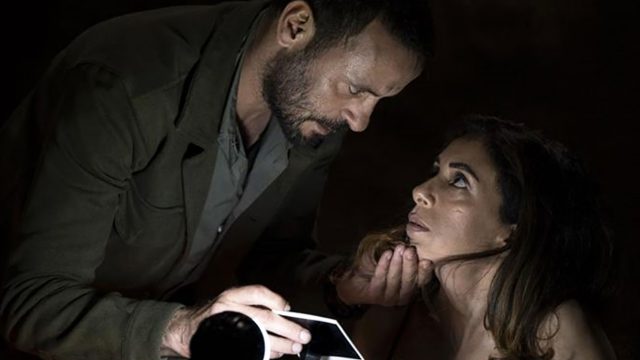AFI Fest 2021: Huda’s Salon, by David Bax

Huda’s Salon is eager to let us know right away that it is “based on true events.” Whether or not that’s a bit of Fargo-style theatrics, I don’t know. But this harrowing thriller about espionage, blackmail and brutal political life-trading in Palestine certainly feels like it could be true. True enough, in fact, to inspire further righteous anger in its viewers. But feeling true isn’t the same as feeling real and, in the end, Huda’s Salon might lay on the didacticism and cynicism a bit too thick. Thick enough, in fact, to inspire its viewers to throw in the towel.
Director Hany Abu-Assad kicks things off with a very long take in which Reem (Maisa Abd Elhadi) is getting her hair done in the Palestinian salon of divorced beautician Huda (Manal Awad). While being ushered from sink to chair to dryer and occasionally checking on her sleeping baby (the only other person in the salon), Reem complains to Huda about her jealous, controlling husband. This goes on until Huda does something we can see but Reem can’t that completely changes the tenor of the scene. Sometimes long takes are used to keep the audience from catching their breath during a tense or active scene. Often, they are used just to show off. Here, though, the lack of relief from a cut illustrates the invisible prison in which Reem lives as a married woman of modest means in Palestine.
Elhadi and Awad more or less split screen time on solo journeys for the rest of the film. But Reem is still very much our protagonist and Elhadi’s performance is the film’s greatest strength. The impossible position in which she is put after the events at Huda’s salon are enough to drive someone crazy. Shrewdly, though, Elhadi keeps her teeth away from the scenery, letting her desperation come out in small moments of nervousness or impulsiveness. Her psychic turmoil is all the more palpable because she suggests more than she shows.
Huda’s Salon is certainly critical of Israel and its heartless control over Palestinian lives; occupation can turn the occupied against one another. But more than that, it’s a look at the reality of Palestinian women in particular. Hemmed in by a lack of options, women in a patriarchy are already an occupied population.
And so there’s an argument to be made that the film’s bleak ending is an honest one. But for all its commendable intentions, Huda’s Salon withholds catharsis in a way that feels too pessimistic and easy.



























